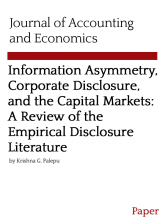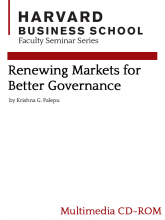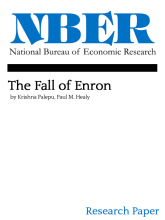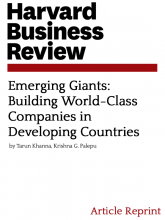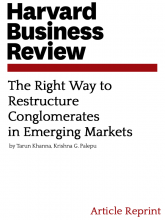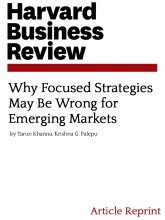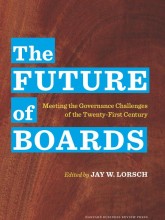Already cited by the Financial Times, Forbes.com, The Economic Times, WSJ/Mint and several other prominent global business publications, Winning in Emerging Markets is quickly becoming the go-to book for mapping a strategy for entering new markets—and then quickly gaining a competitive edge in those high growth regions.
Advancing the discussion about emerging markets themselves and how organizations can best leverage the potential of these regions, Tarun Khanna and Krishna Palepu – both well respected thinkers on the subject – argue there is more to sizing up these markets than just evaluating data points related to size, population, and growth potential. In fact, they say the possibility to expand a company’s progress in developing economies is to first asses the area’s lack of institutional infrastructure—and then to formulate strategies around what the authors call “institutional voids” to the firm’s advantage. Khanna and Palepu say the primary exploitable characteristic of an emerging market are such voids, and though they create challenges, they also provide major opportunity both for multinationals and local contenders.
Winning in Emerging Markets serves as a playbook for measuring a market’s potential and for crafting a strategy to succeed there.

